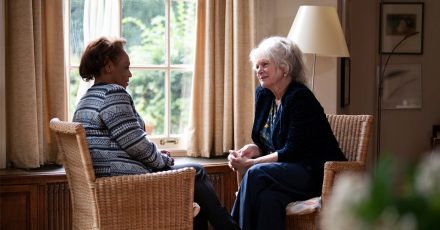The flu season has begun more than a month earlier than usual and is already at roughly three times the level seen at the same point last year, raising concerns of a long, drawn-out winter for the NHS.
UK Health Security Agency (UKHSA) surveillance shows flu positivity rising from 6.1% to 8.2% this week, compared with 2.9% at this time last year. The rise is largely driven by a spike in school-aged children. Similar early activity in the Asia‑Pacific — where Japan has declared a flu epidemic and closed many schools — adds to worries that wider spread could follow in the coming weeks.
NHS efforts to limit spread focus on the autumn/winter vaccination campaign. So far this autumn 12,219,568 flu vaccines have been delivered, including:
– 6,770,248 to people aged 65 and over
– around 1.8 million to school-aged children
– more than 366,000 to two- and three-year-olds
For the first time, eligible people have been able to book flu and COVID-19 vaccine appointments since 1 September to improve access and allow advance booking. NHS teams are also offering vaccines in pharmacies, GP surgeries and community drop-in clinics to make it easier for eligible people to get protected close to home.
Who should be vaccinated
All eligible adults are advised to receive their flu jab by the end of November. Vaccines are offered to:
– everyone aged 65 and over
– under‑65s in clinical risk groups
– care home residents and carers
– pregnant women
– close contacts of people who are immunosuppressed
– frontline health and social care workers
– children (through school programmes or GP appointments for 2–3‑year‑olds)
Parents are urged to return school vaccination consent forms or to book GP appointments for two- and three-year-olds so children are protected before the Christmas period.
NHS and UKHSA guidance
Duncan Burton, Chief Nursing Officer for England, warned the early rise in children is concerning because youth transmission often precedes spread to adults. He urged everyone eligible to get vaccinated without delay, noting annual vaccination is important because the virus changes each year and vaccines are a safe, effective way to reduce illness and protect others.
Dr Alex Allen, consultant epidemiologist at UKHSA, said the season has started unusually early with increases now seen across other age groups. He stressed that those eligible are at greater risk of severe illness and should book their vaccine as soon as possible. Parents should return consent forms or arrange GP appointments for young children; the nasal spray vaccine reduces serious illness in children and lowers transmission to vulnerable relatives.
Anyone with flu or COVID-19 symptoms — including high temperature, cough, fatigue or aches — should minimise contact with others, especially vulnerable people. If going out is necessary, consider wearing a face covering, wash hands regularly and ensure indoor spaces are well ventilated.
Further information on eligibility and where to get vaccinated is available from the NHS and local health providers.

